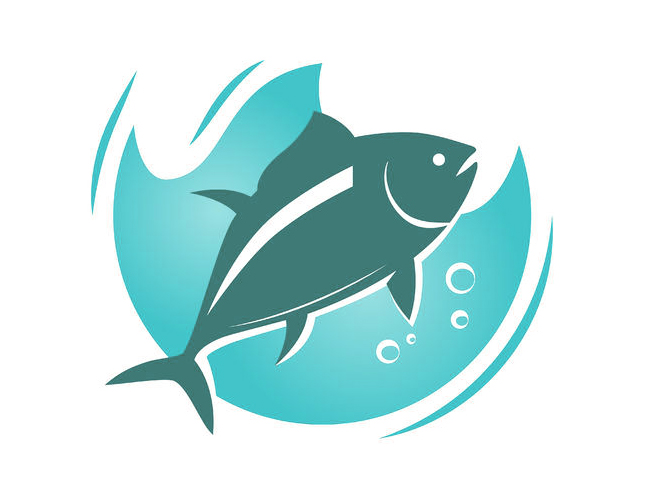Yes, you CAN eat seafood safely during pregnancy
By Carley Heller, MS, NBHWC
Reviewed by Therese Molzahn, MS, RD, LD
Pregnancy requires some changes to what a woman eats. One common piece of advice is to not consume fish while pregnant, or to limit it to 12 ounces per week. This is due to the concern that mercury & other contaminants or toxins in fish may interfere with the baby's development. But this advice is slightly misguided & a bit more nuanced. This article will dive into how to approach seafood so Mom can receive all the nutritional benefits with the least amount of risk.
 The Nutritional Benefits of Seafood
The Nutritional Benefits of Seafood
Seafood has many nutritional benefits & those nutrients aren't commonly found in other foods. Let's walk through what nutrients are commonly in seafood & why they're beneficial for Mom and baby.
DHA & Omega 3 - Although I listed them separately, DHA is a specific type of Omega 3. DHA is essential to obtain through diet or supplements during pregnancy. DHA is incorporated into baby's rapidly developing brain and eyes in utero. And it even assists with the formation of neurons in the baby's brain! And it is completely possible to meet your DHA needs by consuming 2-3 servings of cold water, fatty fish each week (examples below).1 Omega 3's in general are also important for Mom's brain. They help improve memory & mood too.2
Vitamin D - Fish and seafood are among the few foods that are rich in this nutrient, and most pregnant women are deficient in it. Vitamin D is important in preventing pregnancy complications like preeclampsia, having a low-birth-weight infant, and gestational diabetes. In addition, it plays a role in bone development of the baby.1
Selenium – Selenium has antioxidant properties so it protects Mom & baby from free radicals and infections. It also binds to & eliminates heavy metals, like mercury (which is a neurotoxin present in specific types of seafood - more below). Selenium also plays a role in DNA production, liver health, and thyroid health.3
Iodine – Iodine is crucial for thyroid function in Mom & thyroid development in baby. In fact, needs go up 50% when pregnant. Certain types of seafood, like seaweed, have really high amounts of iodine.1
Zinc – Zinc is a key player in the immune system, and supports the growth & development of the baby. Some research shows adequate zinc status reduces the risk of preterm birth too.4
The "Risky" Types of Seafood
There are certain types of seafood that are known to have higher levels of mercury, a neurotoxin that readily crosses the placenta. King mackerel, shark, tilefish and swordfish should be avoided. Good news is not a lot of us consume these fish in the first place. The only fish that is commonly eaten & does contain some mercury is tuna. But it doesn't need to be avoided, just limited to less than 6 oz per week.
Another thing to keep in mind is avoiding raw fish - sushi, oysters, smoked salmon, sashimi or ceviche, for example. This is more from the perspective of food safety. Pregnant women are a little more susceptible to getting food poisoning because their immune system is already working hard for herself & the baby. By no means is food poisoning guaranteed, but we want to reduce the likelihood of exposure by avoiding raw animal meats, fish & seafood included.
How to Pick Seafood
There many other types of fish and seafood that are safe to eat while pregnant. Like mentioned above, cold water, fatty fish is a great place to start. They're lower in mercury, while having high levels of brain-boosting omega 3's and DHA, along with Vitamin D. Examples are salmon, herring, sardines, and fish eggs (also known as "roe").
Shrimp, seaweed, crab, scallops, tilapia, and cod are other great options because of the presence of selenium, zinc, and especially iodine.
Seek wild-caught fish when possible. Farmed fish is often contaminated with certain toxins & heavily depend on antibiotic use. Again, food safety is important. Storing fresh seafood in the fridge, and separated from fruits and veggies. Using a separate cutting board, cooking seafood until it reaches internal temperature of 145 degrees F. Or if you don't have access to a food thermometer, cook until flesh is opaque and the filets flake easily from a fork. As for clams and mussels, cook in their shells until they open; throw away any that don't open.
Summary
- Women are often told to avoid fish/seafood due to mercury, but seafood is also an important source of various nutrients Mom needs for the growth & development of her baby.
- The nutritional benefits of seafood include: selenium, iodine, and zinc. Fatty fish have really great amounts of brain boosting omega 3/DHA; along with Vitamin D, which is a vitamin pregnant women are commonly deficient in.
- There are certainly more risky types of fish - king mackerel, shark, tilefish and swordfish, which should be avoided. Thankfully these aren't commonly consumed fish.
- The only type of fish that is more commonly consumed that can have higher levels of mercury is Albacore tuna. But it is recommended to keep it to < 6 oz/week.
- Of the recommended forms of seafood, seek wild-caught when possible, to reduce likelihood of toxin contamination & antibiotic use. Practice safe storage & cooking methods.
References:
1. Nichols, L. (2018). Real Food for pregnancy.
2. Omega-3 Fish Oil and Pregnancy. (2012, April 27). American Pregnancy Association. https://americanpregnancy.org/healthy-pregnancy/pregnancy-health-wellness/omega-3-fish-oil-and-pregnancy/
3. Hubalewska-Dydejczyk, A., Duntas, L., & Gilis-Januszewska, A. (2020). Pregnancy, thyroid, and the potential use of selenium. Hormones (Athens, Greece), 19(1), 47–53. https://doi.org/10.1007/s42000-019-00144-2
4. Iqbal S, Ali I. Effect of maternal zinc supplementation or zinc status on pregnancy complications and perinatal outcomes: An umbrella review of meta-analyses. Heliyon. 2021;7(7):e07540. doi: https://doi.org/10.1016/j.heliyon.2021.e07540.
Share this page:
About the reviewer:
Therese Bredemus, MS, RD, LD
Therese is a registered and licensed dietitian with significant experience helping people develop a personalized plan to build healthy habits, learn about nutrition management, create exercise plans, and better manage chronic conditions using nutrition, exercise, and healthy lifestyle behavior changes.
She is very experienced working with women to develop nutritional plans for better management of PCOS, endometriosis, menopause, and pregnancy. Therese works hard to find solutions for her patients that meet their cultural, religious, and ethnic preferences while working within each person's learning style and motivational needs.
To book an appointment with Therese, call Minnesota Women's Care at 651-294-1150 or click Book Now.
